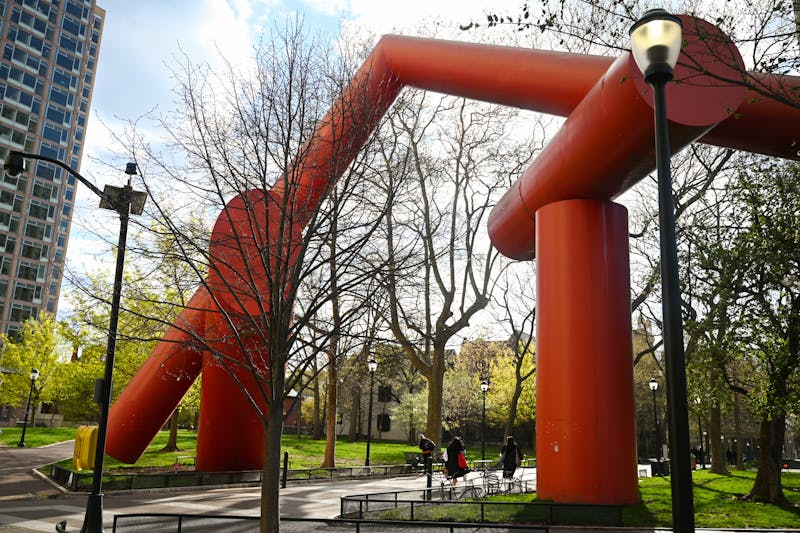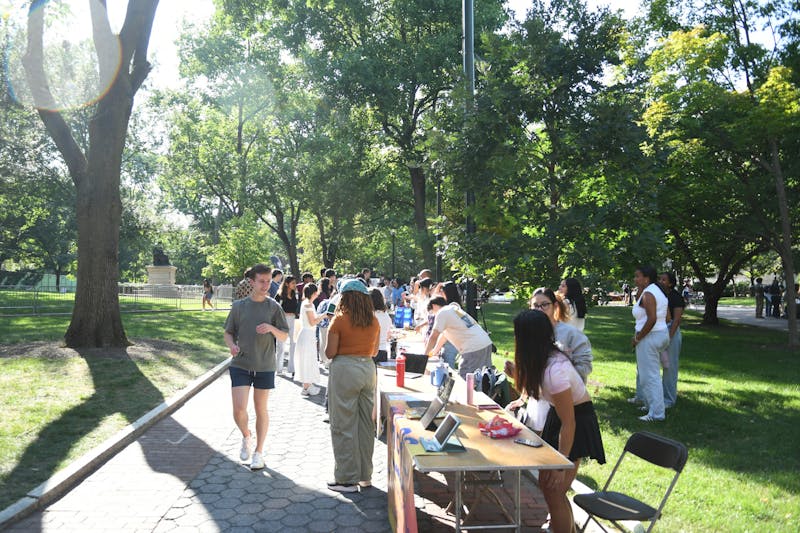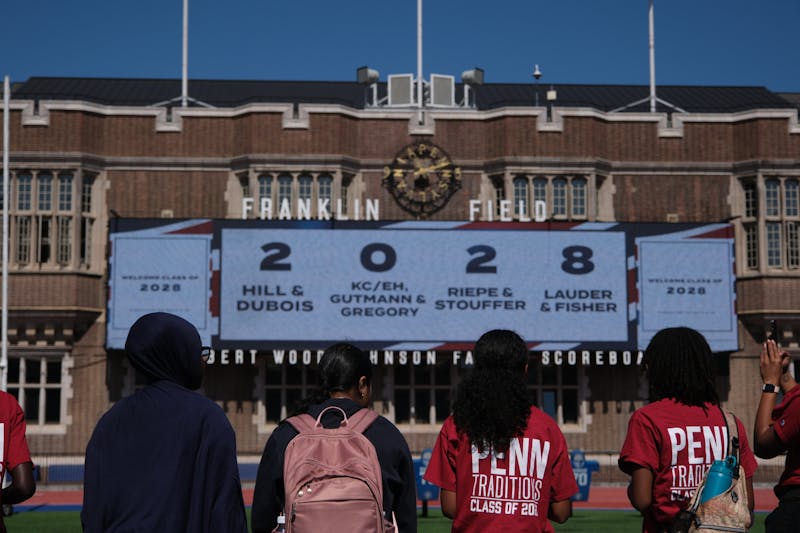
Columnist Lindsay Muneton encourages Penn students to consider open membership clubs.
Credit: Caleb CrainThere is something really fascinating about the average Penn student’s brain; you come back to campus for a few months, and the novelty wears off. No one stops walking for the poor pledge who threw his Rolex in a bush for a dare. Everyone just laughs at the notion that some of our classmates will go into white-collar crime. But try to inform the person you just met in class that you joined a few clubs without an application and watch as their neurons fire to process what you just said.
It is to no one’s surprise that new students continue to discuss and debate the benefits and drawbacks of club applications. Some students claim that interviews and coffee chats are necessary for clubs to maintain exclusivity and provide real-world experience. The other side calls for the end of club applications altogether. This might be close to the 500th article to broach this topic, but I have a slightly different take. In all of the uproar about exclusivity and exclusion, we shut our eyes to the value of clubs that are exclusively excluded from the conversation: open-membership clubs.
Open clubs, or open-membership clubs, are student organizations that are available to all students and do not require an application to join. Considering the sheer amount of time it requires to get into Penn, you’d think these organizations would be a breath of fresh air. Why are we secretly masochistic in continuing to apply for clubs with single-digit acceptance rates when there are stress-free alternatives at our disposal?
When I first arrived at Penn, I quickly found myself woefully unprepared for all of the unspoken rules I would have to navigate to “succeed.” I did not realize how quickly the club application process would cycle and ended up avoiding the commotion simply through pure ignorance. Instead, I joined open-membership clubs that pertained to my interests and my desire to find a community of likeminded individuals. Yet, only a year later and all of my clubs seem to have disappeared without a trace. These disappearances are not mere coincidence; they’re a consistent pattern.
In fact, when looking at the list of Student Activities Council organizations, almost all clubs that are eventually disbanded or de-recognized are open membership. We can point a couple of fingers: Of course, students don't want to join clubs that are disorganized, less consistent, and not interesting. But at the end of the day, we all know what it’s really about: reputation and prestige. It seems much less impressive to be a part of the Baking Club than Penn Electric Racing or Wharton Investment & Trading Group. I don’t blame anyone for joining a club because of their interests; I blame students for not joining a club in spite of them.
Not to sound naive, but I came to Penn with the preconceived notion that clubs were a form of creating community and garnering close friendships. Instead, I encounter other students burnt out from their “casual” coffee chats or stressing over club applications as if they were applying to J.P. Morgan. It is no wonder that so many students suffer from the exhausting loneliness associated with Penn Face. When your primary interactions are based on some form of a transaction or mutual benefit, it seems impossible to forge true bonds. I congratulate all those who are trying to get a head start on their future, but must we prioritize ambition at the cost of community?
We all like to complain about the high-pressure environment, but these criticisms are all talk and no action. The stigmatization of open clubs must seem insignificant relative to other pressing issues on campus, but it’s indicative of a larger problem. When faced with the risk of losing an invisible competition, we avoid the activities that do not benefit our career goals directly, losing a chance for actual connections instead.
As students at an academically rigorous institution who hope to actively participate in a comically difficult labor market, it makes sense to claw for any potential advantage. I cannot deny that certain clubs provide further knowledge and connections that mimic a real-life job market, but why are we in such a rush to enter real life? Not to sound like a broken record, but there will always be more applications and interviews; we only have four years to find the people who can make this inevitable tedium worth it.
LINDSAY MUNETON is a College sophomore studying sociology from Bergenfield, N.J. Her email address is lmuneton@sas.upenn.edu.
The Daily Pennsylvanian is an independent, student-run newspaper. Please consider making a donation to support the coverage that shapes the University. Your generosity ensures a future of strong journalism at Penn.
Donate












